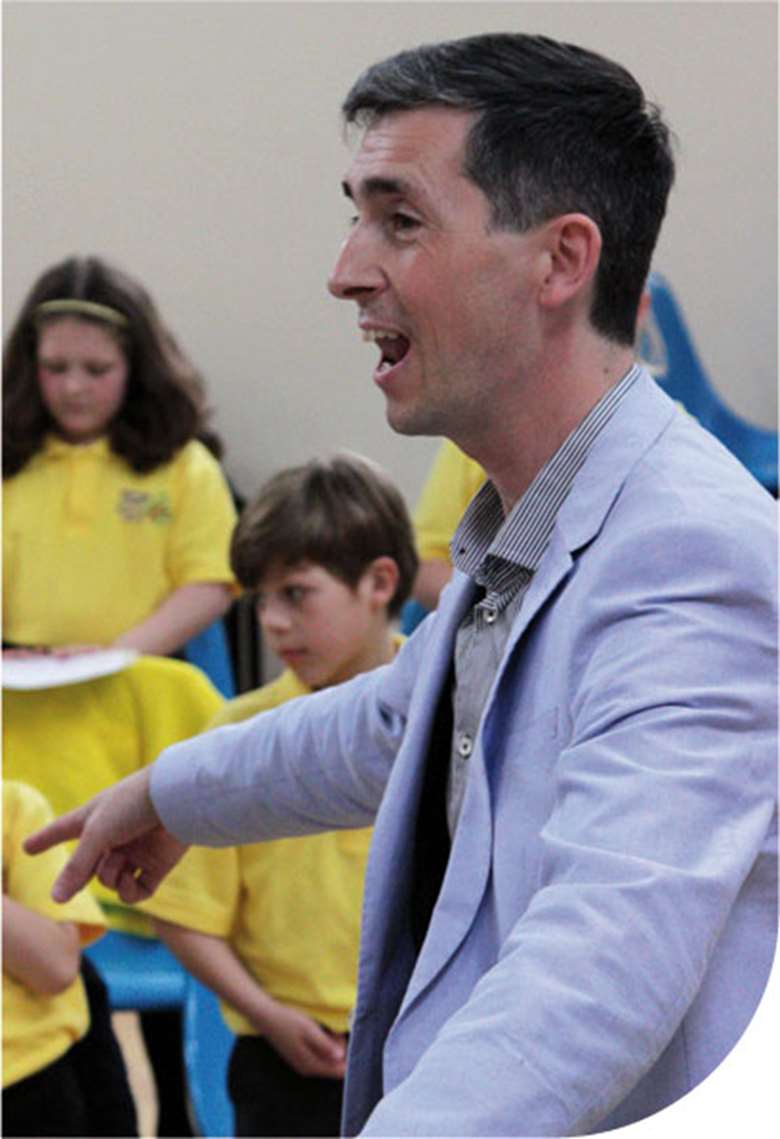An adventure for education: Richard Jeffries
Mark Broad
Tuesday, June 1, 2021
Awarded a Churchill Fellowship to investigate educational systems in other countries, Richard Jeffries visited Finland, USA and Canada, returning home inspired and determined to do more. Mark Broad catches up with him

MB: In your view, what is most important right now?
RJ: Raising the profile of music education in general – music in its own right! Up to the age of 14 it is every child's right, but sadly the implementation is uneven. Provision is patchy, particularly in primary schools. Some manage excellent work, others treat music as a bit of an ‘add on’ and might end up doing hardly any – for various reasons, be it training, funding. At secondary, fewer pupils are taking music options.
It means young people are missing – you could even say being denied – opportunities to benefit from the kind of skills development that musical activity is known to advance, skills that are broadly useful throughout life. I do believe that music can enhance the whole curriculum.
MB: What can be done?
RJ: More basic training for generalist class-teachers, so they can feel confident leading a song, for instance, plus regular training and encouragement from music specialists. That's one thing I'm doing more of now: visiting schools to work alongside teachers, demonstrate method and share ideas. But we're working together. That's vital. If the visiting music specialist leads and the class teacher takes it as an opportunity to get on with something else, it's effectively wasting that teacher's chance to improve.
‘Little and often’ works best, singing together and experiencing music at various points throughout the day. It's not practical to depend on a visiting specialist for that, so there has to be a balance.
MB: How did the Churchill Fellowship come about?
RJ: A Churchill Fellowship is all about learning from other countries. I hadn't heard of it before, but Suzi Digby advised me to think about an application.
It took me a few tries, refining my proposal before I gained an interview. Then it was a bit like Dragon's Den! I was very conscious of the fact that they get thousands of applications and a fellowship, once awarded, really is an ongoing commitment. It's not just the trip and the report, but what you learn and how you go on to develop that in your work with others.
I had to be very clear about where I wanted to go and why and be ready to talk about the longer-term objectives. I'd definitely recommend it – it focuses your thoughts on what's really important and in the process you learn a lot about yourself.
MB: You made visits to Finland, the USA and Canada. Why those countries?
RJ: In Finland it was as much about their approach to education as a whole. There it takes five years to become a teacher. Teachers are given responsibility, respect, and trust. There isn't a national inspection body. The curriculum is less regimented and they're able to weave subjects together, pursuing interests. There's a greater sense of discovery and freedom which allows for more child-centred ways of learning – creative projects can be the driving force. Schools may apply to do extended music, which might be three or four hours a week. There's no national testing before the age of 16. Of course, you can't uproot a whole system and implement it in a different country, but I believe there's plenty we can learn from the Finns.
MB: And in America and Canada?
RJ: In the USA and Canada I visited some of the big choral organisations, those that provide excellent training right the way through from the very youngest, all the way up. Children involved in those programmes are practising musicians. As a choral leader myself, it was hugely motivating. I'm now planning on a bigger scale, not just my choral work, but more action in the community and particularly with schools, supporting teachers in curriculum music.
MB: What do you make of our new Model Music Curriculum?
RJ: Let's be positive. It's a step forward in raising the profile of music education – that's welcome. It shines a light on something that's very important and urgently needs attention. And there's a clear emphasis on the central role of singing – let's act on it!
Read Richard Jeffries’ open letter to the Prime Minister at richardjeffries.co.uk
Learn more about Churchill Fellowships at wcmt.org.uk

